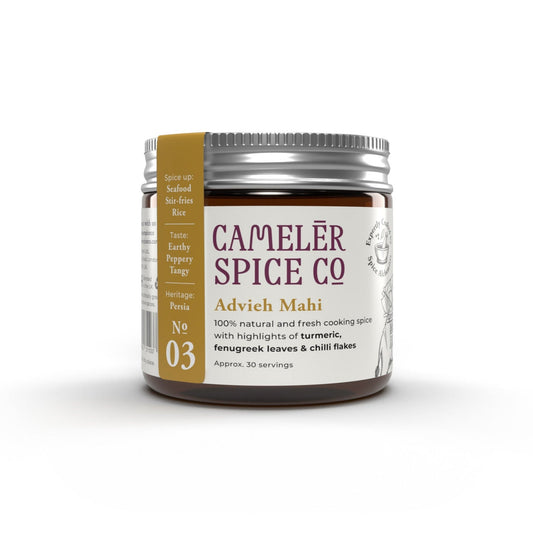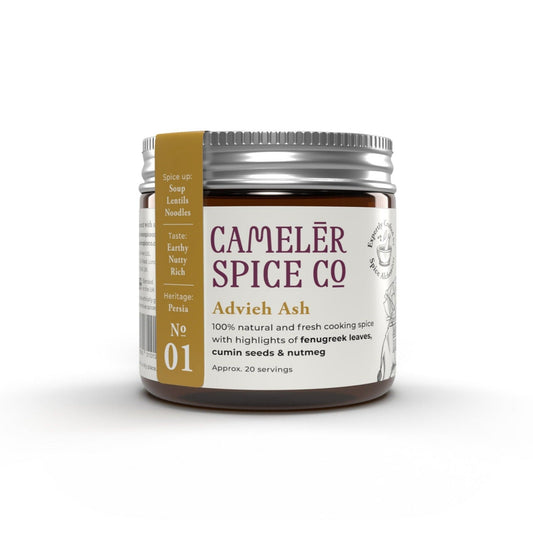
Collection: Fenugreek Leaves
(Also known as Methi, Goat's horn, Greek hayseed and Greek clover)
What do fenugreek leaves taste like?
Part of the Bean family and a relative of the liquorice family. Young fenugreek leaves (methi) are a delicious vegetable. They have a similar appearance to pea shoots when not dried and milled to a herb form. Fenugreek translates from Latin into Greek hay. Fenugreek seeds have a sweet and strong taste with a hint of maple syrup and coffee. The leaves are less pungent. Its stuffy baseline isn't to everyone's liking when taken on its own. It typically provides a bittersweet background to many recipes. It is native to the Eastern Mediterranean. Today it is used in Iranian, West Asian, Indian and Sri Lankan dishes, and it is a typical ingredient found in curry powder.
What flavours go with fenugreek leaves?
- Chilli
- Cucumber
- Cumin
- Coriander
- Mint
- Onion
- Tomato
- Turmeric
Common in Persian cuisine Fenugreek leaves (methi) add a bitter and earthy flavour to bring a distinctive taste to recipes when paired with some of the above flavours. The 6th Century BC Persian spice marinade Advieh Mahi is sublime with simple salmon and the 6th Century BC Persian finishing spice Advieh Ash makes delicious warming soups, stews and ramen style noodle dishes.
What are the health benefits of fenugreek leaves?
Does fenugreek increase breast milk is often one such question posed.
Fenugreek is often recommended for women who breastfeed to increase their breast milk supply, where there can be a decrease in milk because of stress or fatigue amongst other well-being reasons. It is also considered to boost hair growth and benefit scalp health. Fenugreek leaf is also considered great for gut health.
What are interesting facts about fenugreek leaves?
- Does fenugreek make you smell? The solatone in fenugreek can pass through the body and change the smell of your urine or sweat. The scent almost resembles maple syrup.
- Archaeologists have found evidence of fenugreek seeds in Iraq dating back to 4000 BC and further remnants of fenugreek seeds in the 3000-year-old tomb of Tutankhamen. The Egyptians considered fenugreek as a cure or remedy.
- In Roman times, it was such a common plant, that cattle regularly ate fenugreek fodder.
- In the second century AD, there is a record of the Syrians using fenugreek as an ingredient in a ritual perfumed ointment for athletes during the games.
What is the chief flavour profile of fenugreek leaves?
Sotolon: (sweet, maple syrup and caramel) think candyfloss at the funfair. Sweet like brown sugar. This key flavour profile complements other spices such as liquorice, allspice and cinnamon.
Fenugreek Leaves nutritional facts
For a detailed breakdown of the nutritional values of this product, including calorie content, macronutrients, and other key details, please refer to the attached nutritional information sheet. This information is also available on our jars, with allergens highlighted in bold
Shop Spices With Fenugreek Leaves
-
Advieh Mahi
Regular price £8.95 GBPRegular priceUnit price / per -
Advieh Ash
Regular price £8.95 GBPRegular priceUnit price / per




